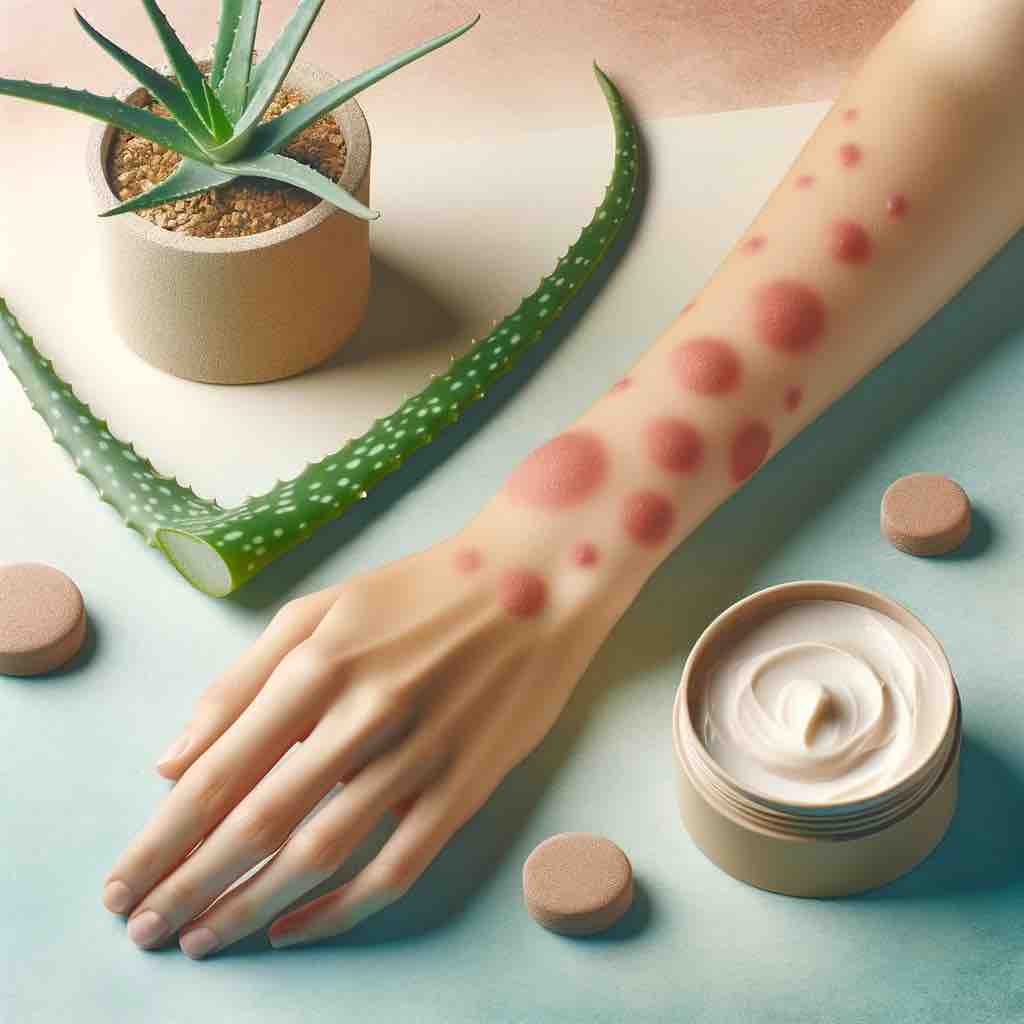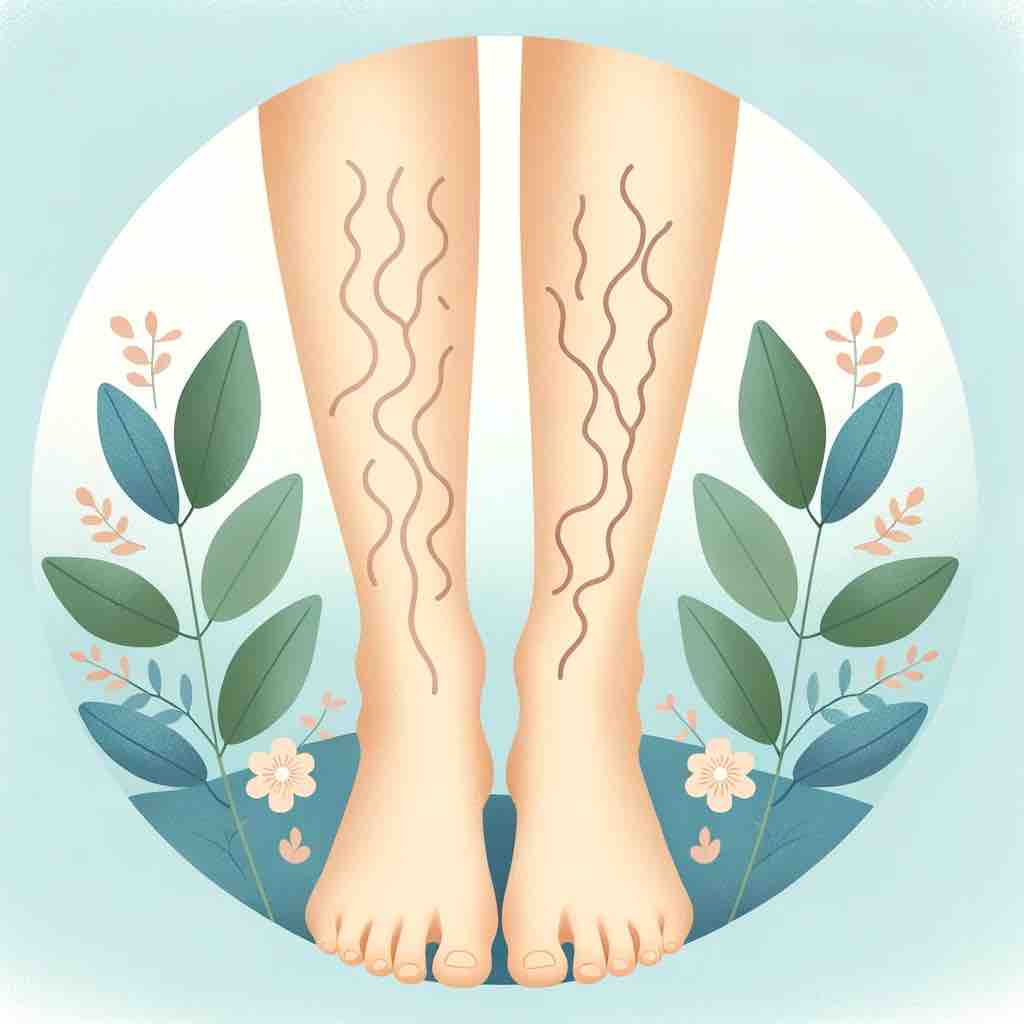
1. Introduction
Discoid eczema, also known as nummular eczema or discoid dermatitis, is a distinct form of eczema marked by round or oval patches that commonly appear on the arms and lower legs. This condition is notorious for its persistent nature, often bringing along a suite of discomforts such as itching, inflammation, and dryness. This guide aims to be your companion in navigating the complexities of discoid eczema, offering insights into its causes, symptoms, and a plethora of management strategies.
2. Identifying Discoid Eczema: What Does It Look Like?
Discoid eczema manifests as coin-shaped patches that can range from being itchy and crusty to red and inflamed. These patches are predominantly found on the arms and lower legs but can appear on other parts of the body as well.
- Early Stages: Initially, small, raised bumps appear, which may be filled with fluid.
- Progression: Over time, these bumps may merge, forming larger, coin-shaped patches.
- Chronic Stage: In persistent cases, the patches may become crusty, scaling, and thickened.
For visual references and a deeper understanding, you might find it helpful to refer to images and descriptions in dermatological resources.
3. Unraveling the Causes and Triggers
Understanding the root causes and potential triggers is pivotal in managing discoid eczema effectively.
- Skin Barrier: Compromised skin barrier function often plays a role in the development of eczema patches.
- Environmental Factors: Elements such as weather, allergens, and irritants can exacerbate the condition.
- Stress and Health: Flare-ups can also be triggered by stress and general health conditions.
4. Navigating Through Treatment Options
A multitude of treatment options are available, each catering to various aspects of discoid eczema management.
- Medical Treatments: These include corticosteroids, antihistamines, and sometimes antibiotics to manage infections.
- Topical Applications: Creams and ointments that are specifically formulated to reduce inflammation and soothe the skin.
- Natural and Home Remedies: Incorporating natural ingredients and remedies to provide gentle and soothing relief.
5. Skincare Essentials: Choosing the Right Products
Skincare plays a crucial role in managing discoid eczema. The right products can make a significant difference in symptom management.
- Cleansers and Soaps: Opt for mild, fragrance-free cleansers that clean without over-drying the skin.
- Moisturizers: Regularly moisturize the skin with creams or ointments that are free from irritants and allergens.
- Specialized Eczema Products: Consider products specifically formulated for eczema-prone skin, such as those containing ceramides.
6. Special Considerations: Discoid Eczema in Diverse Skin Types
Discoid eczema can manifest differently across various skin types, including black and dark skin. Understanding these nuances is essential for effective management.
- Presentation in Dark Skin: Discoid eczema may appear as hyperpigmented or hypopigmented patches, making it essential to recognize and treat accordingly.
- Tailoring Treatments: Consider skin-specific needs and responses when choosing treatments and skincare products.
7. Managing Discoid Eczema in Infants and Children
Younger populations, including infants, may also encounter discoid eczema, necessitating gentle and thoughtful care strategies.
- Symptom Management: Focus on minimizing discomfort and preventing infection in the delicate skin of infants and children.
- Product Selection: Opt for pediatric-friendly products that are mild and suitable for sensitive skin.
8. Lifestyle and Self-Care Strategies for Discoid Eczema
Adopting certain lifestyle practices and self-care routines can enhance the overall management of discoid eczema.
- Diet and Nutrition: Embrace a diet that supports skin health and minimizes inflammation. Consider exploring dietary insights for eczema management.
- Stress Management: Engage in practices that promote relaxation and stress reduction, as stress can often trigger eczema flare-ups.
9. FAQs: Quick Insights into Discoid Eczema
Frequently asked questions can offer quick insights and clarifications, aiding in a better understanding and management of the condition
- What are the common triggers of discoid eczema? Discoid eczema can be triggered by a variety of factors such as dry skin, environmental allergens, stress, and even certain materials that come in contact with the skin. Identifying and avoiding these triggers can be instrumental in managing the condition effectively.
- How is discoid eczema different from other forms of eczema? Discoid eczema is characterized by round or oval patches of eczema, predominantly appearing on the arms and legs, distinguishing it from other forms of eczema which may have different patterns and distribution.
- Which creams or ointments are most effective for managing discoid eczema? Creams and ointments containing corticosteroids, calcineurin inhibitors, or barrier-repairing ingredients like ceramides are often recommended for managing the symptoms of discoid eczema.
- Are there any natural remedies that can help manage discoid eczema? Natural remedies such as oatmeal baths, coconut oil, and honey have been found to be soothing and beneficial for some individuals with discoid eczema, but their effectiveness can vary.
- How can diet influence discoid eczema? A diet rich in anti-inflammatory foods, and low in allergens and irritants, may help in managing the symptoms of discoid eczema by reducing inflammation and supporting overall skin health.
- Is discoid eczema contagious? Discoid eczema is not contagious; it cannot be transmitted from one person to another. It is a skin condition influenced by various internal and external factors.
- Can stress impact discoid eczema? Yes, stress can be a significant factor in eczema flare-ups. Managing stress through relaxation techniques and self-care practices can be beneficial in managing discoid eczema.
- What are the best practices for skin care in discoid eczema? Maintaining a consistent skincare routine with gentle, hydrating, and fragrance-free products is crucial. It’s also essential to avoid known irritants and allergens.
- How can discoid eczema be prevented from worsening? Regular moisturization, avoiding triggers, and following a tailored skincare and treatment regimen are key strategies to prevent discoid eczema from worsening.
- What steps can be taken to manage discoid eczema in infants and children? For infants and children, it’s essential to use pediatric-friendly products, keep the skin moisturized, and avoid potential triggers and irritants to manage discoid eczema effectively.
10. Conclusion: Empowering Your Journey with Discoid Eczema
Navigating through discoid eczema is a journey of learning, adaptation, and perseverance. Armed with comprehensive knowledge and a variety of strategies, you are better equipped to manage the condition, find relief, and improve your skin’s health.
11. Additional Resources for In-Depth Exploration
For further exploration and in-depth insights into managing discoid eczema, consider diving into these additional resources:
Blog Tags
discoid eczema, nummular eczema, eczema treatment, skincare, natural remedies, eczema triggers, eczema prevention, eczema in children, eczema skincare, eczema diet











